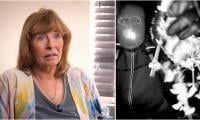Death of an assassin
The cold-blooded murder of former Punjab governor Salmaan Taseer in early 2011 had me wondering what was behind the smile of this assassin. To Mumtaz Qadri’s lovers (and in the Islamic Republic of Pakistan, there are many) his smile was angelic. To those who hated him and what he stood for, it was abhorrently smug.
My gut reaction to him was hatred. Upper middle-class liberals like myself watched in dismay as he became the poster boy of the bigotry brigade. This dismay has turned into despair as videos of the swelling tides of hysterical followers at his Liaquat Bagh funeral have surfaced. Qadri stands for everything we have come to despise about our increasingly radicalised country: violence in the name of religion, maddening intolerance, crippling narrow-mindedness and annoying self-righteousness.
But is it possible that I feel the way I do because of my relatively privileged life? My family and I have never known poverty. We are relatively well-read, well-travelled and have had the opportunity to receive a well-rounded education. I am part of a small segment of the country that is currently living a very cushy lifestyle.
The ‘brutal’ man who shot Taseer, and the equally ‘misguided’ and ‘abhorrent’ religious right, who have been applauding the killer and declaring him a hero, defy our well-reasoned logic about the ‘true message of Islam’ and shake our ‘moderate’ selves to the core.
As the battle lines are drawn in the mainstream and social media between those who condemn the hanging of Qadri and those who are celebrating it, the widening chasm that exists between the two diagrammatically opposed ideological groups in our country has again come into focus. And this divide, which comes to the fore every time such an incident happens, is posing a threat to our very existence as a nation. Now that he has been hanged, it might be worthwhile for us to ponder what made Qadri what he was. Can we, as a society, be sensitive to those factors rather than contribute to them?
When the liberal Taseer stood up for the plight of a poor Christian girl, who became another victim of the country’s outrageously misused blasphemy law, he became a target of the hate-mongering ‘mullah brigade’, who drummed up their usual vitriol and issued angry fatwas. But the governor’s stance resonated with us liberals, who could identify with his sentiments and are finding overt Islamisation threatening to our Western-influenced lifestyles and belief systems.
With such widely differing influences and life experiences at play, it’s only fair to ask: Should we guard against becoming as intolerant as the group we have so eloquently condemned over the past few years? We may well be in danger of becoming as small-minded as the Americans who divide humanity into ‘us’ and ‘them’ and indiscriminately bomb countries and citizens, without addressing the root cause of the resentment in those parts of the world?
I believe Qadri’s ideological opposition to Salmaan Taseer’s stance on the blasphemy law was not the only reason that he shot 20 rounds of ammunition into the chest of the man he had been recruited to protect. Was he not the product of the complex matrix of the region’s geopolitics, the warped ‘war on terror’ and the cruel policies of the West and their cohorts that stoke the fires of resentment amongst the local people?
While we can applaud the fact that the state has meted out justice to a proven and unabashed criminal, we should also realise how poverty, deprivation and social injustice play a role in creating one. Some years ago, while working on a documentary about police reform, I remember visiting the living barracks of the Punjab’s Elite Force Guard, the squad that Qadri belonged to. They were housed in a makeshift ancient Hindu temple and there was certainly nothing ‘elite’ about the place. These guys – clearly the cream of the police crop in terms of fitness, training and ability – were sitting around swatting flies in the stifling heat, made to live in a place barely fit for animals.
What kind of prospects do men like Qadri and their families have to look forward to? As the country plummets deeper into economic crises and basic amenities become harder to afford and access, the extravagant lives of the rich must be harder to stomach for the poorer classes. In some cases, these frustrations are readily channelled into an extremist mindset. Such deep-rooted resentment can easily turn into a deluded superiority about being a ‘better Muslim’.
Qadri shot the ‘blasphemer’, and hence he smiled. He is not a nobody anymore, and probably expects to be showered with rose petals in Jannat just like he was in the courtroom after his arrest.
If we scratch the surface, we see the grossly unfair social divide that is fuelling this twisted, bigoted thinking. We need to start thinking about ways in which we can lessen this divide, give back to the less fortunate and work tangibly towards improving our society and the plight of the poor. Only then can we have some credibility when we preach the doctrine of tolerance and nonviolence to the ‘other side’.
Salmaan Taseer was doing his part right before he died – using his status and influence to speak out against religious intolerance and trying to protect the rights of a marginalised community. He has been subsequently hailed by many as a hero who stood for something.
We should be prepared to fight our own social intolerance before we can fight the religious intolerance of the likes of Qadri. It may be the only way to stave off the pitchforks that might soon reach our own gates.
Note: This is a rehash of a blog post by the writer, accessible here: http://thecitizenstrust.blogspot.com/2011/02/tell-tale-heart-smiling-assassin.html
The writer is a communications specialist.
Email: mehreena_aziz@yahoo.com
-
 Global Oil, Gas Shipping Costs Soar As Iran Warns Of Strait Of Hormuz Closure
Global Oil, Gas Shipping Costs Soar As Iran Warns Of Strait Of Hormuz Closure -
 Beyond The Smartphones: Qualcomm CEO Sees Robotics As Top Growth Engine By 2028
Beyond The Smartphones: Qualcomm CEO Sees Robotics As Top Growth Engine By 2028 -
 Cristiano Ronaldo Flees Saudi: €61m Private Jet Hits Madrid Amid Middle East Turmoil
Cristiano Ronaldo Flees Saudi: €61m Private Jet Hits Madrid Amid Middle East Turmoil -
 Is AI Monitoring Your Every Action At Work?
Is AI Monitoring Your Every Action At Work? -
 Timothée Chalamet Faces Major Blow Ahead Of 2026 Oscars: 'In Depth Of Disappointment'
Timothée Chalamet Faces Major Blow Ahead Of 2026 Oscars: 'In Depth Of Disappointment' -
 2026 El Nino Alert: World May Witness ‘exceptionally Record High’ Global Temperatures
2026 El Nino Alert: World May Witness ‘exceptionally Record High’ Global Temperatures -
 Eamonn Holmes Claims Ex Ruth Langsford 'painted Him As Villain' In Her New Book
Eamonn Holmes Claims Ex Ruth Langsford 'painted Him As Villain' In Her New Book -
 Musk's X, XAI Settle $17.5bn Debt Early, Investors Take Notice
Musk's X, XAI Settle $17.5bn Debt Early, Investors Take Notice -
 King Charles’ Working Himself ‘into An Early Grave’ As Calamity Threatens Monarchy: ‘He’s Losing Allies’
King Charles’ Working Himself ‘into An Early Grave’ As Calamity Threatens Monarchy: ‘He’s Losing Allies’ -
 Elderly Mom Of Nancy Guthrie’s Kidnapping Suspect Tells Story Of Six-hour Long Raid On Her Home
Elderly Mom Of Nancy Guthrie’s Kidnapping Suspect Tells Story Of Six-hour Long Raid On Her Home -
 Taylor Swift Displays 'Elizabeth Taylor' Cover Art Before Record Store Day Vinyl Release
Taylor Swift Displays 'Elizabeth Taylor' Cover Art Before Record Store Day Vinyl Release -
 AI Is Changing Academic Research And Surpassing PhD Scholars–Here’s How
AI Is Changing Academic Research And Surpassing PhD Scholars–Here’s How -
 Blood Moon 2026: Best Viewing Tips, Timing, And Locations For Tonight’s Eclipse
Blood Moon 2026: Best Viewing Tips, Timing, And Locations For Tonight’s Eclipse -
 Princess Beatrice, Eugenie Are Wondering About Andrew, Sarah’s History: ‘How Can They Be So Stupid’
Princess Beatrice, Eugenie Are Wondering About Andrew, Sarah’s History: ‘How Can They Be So Stupid’ -
 Watch: Luke Thompson Teach Jimmy Fallon A Romantic Bridgerton Dance
Watch: Luke Thompson Teach Jimmy Fallon A Romantic Bridgerton Dance -
 Kesha Criticizes Donald Trump For Using Her Song In TikTok Video: 'Disgusting'
Kesha Criticizes Donald Trump For Using Her Song In TikTok Video: 'Disgusting'



